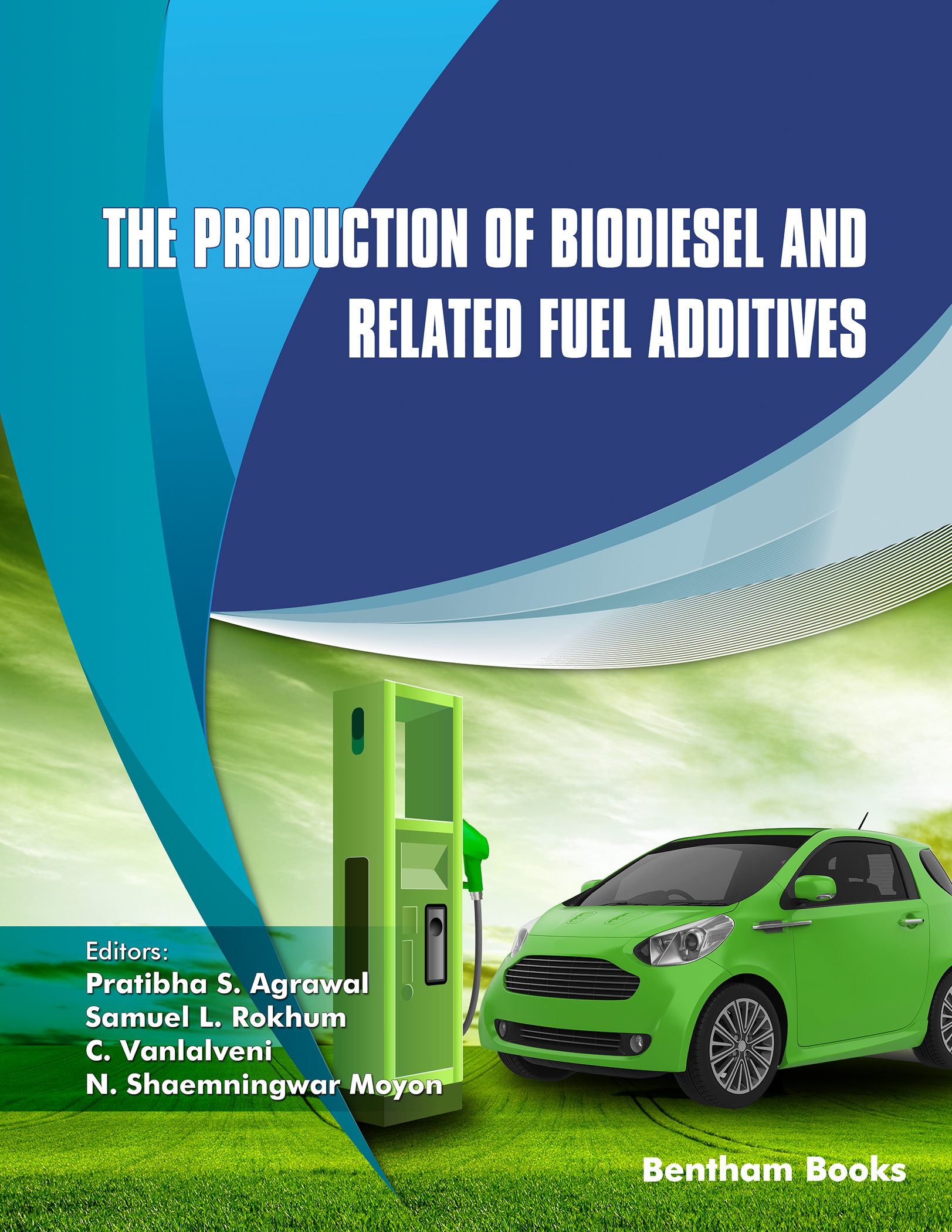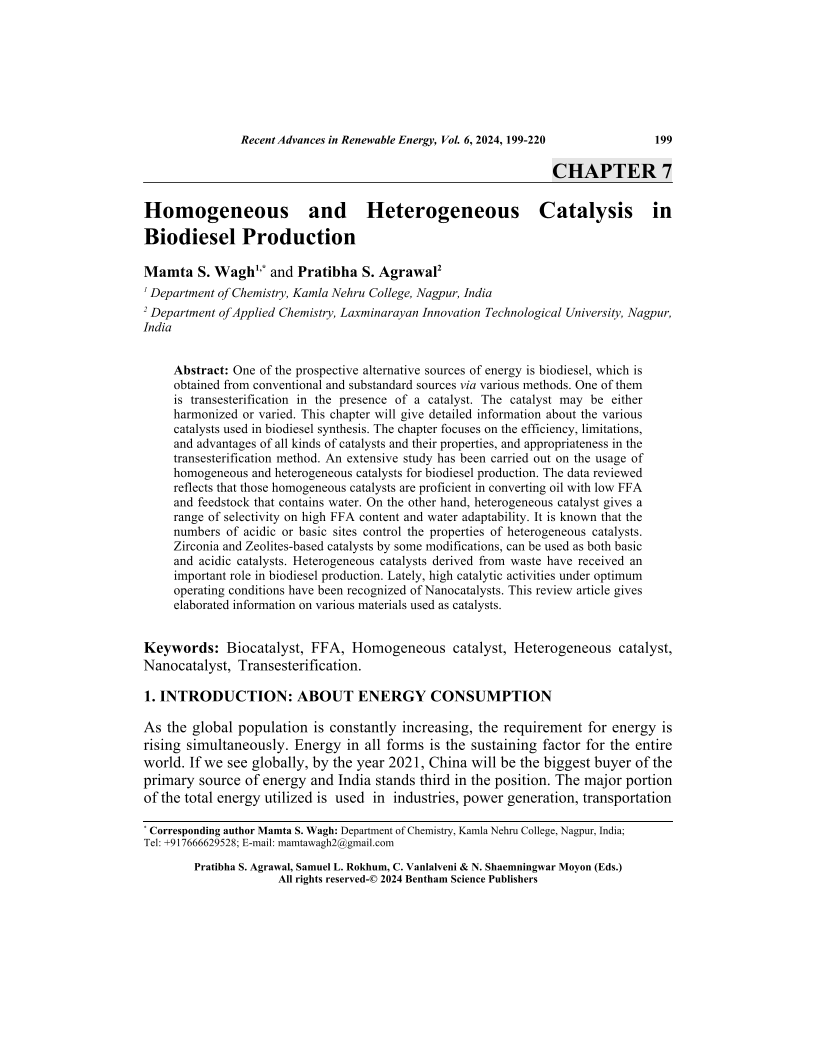Homogeneous and Heterogeneous Catalysis in Biodiesel Production

- Authors: Mamta S. Wagh1, Pratibha S. Agrawal2
-
View Affiliations Hide Affiliations1 Department of Chemistry, Kamla Nehru College, Nagpur, India 2 Department of Applied Chemistry, Laxminarayan Innovation Technological University, Nagpur, India
- Source: The Production of Biodiesel and Related Fuel Additives , pp 199-220
- Publication Date: July 2024
- Language: English
Homogeneous and Heterogeneous Catalysis in Biodiesel Production, Page 1 of 1
< Previous page | Next page > /docserver/preview/fulltext/9789815196740/chapter-7-1.gif
One of the prospective alternative sources of energy is biodiesel, which is obtained from conventional and substandard sources via various methods. One of them is transesterification in the presence of a catalyst. The catalyst may be either harmonized or varied. This chapter will give detailed information about the various catalysts used in biodiesel synthesis. The chapter focuses on the efficiency, limitations, and advantages of all kinds of catalysts and their properties, and appropriateness in the transesterification method. An extensive study has been carried out on the usage of homogeneous and heterogeneous catalysts for biodiesel production. The data reviewed reflects that those homogeneous catalysts are proficient in converting oil with low FFA and feedstock that contains water. On the other hand, heterogeneous catalyst gives a range of selectivity on high FFA content and water adaptability. It is known that the numbers of acidic or basic sites control the properties of heterogeneous catalysts. Zirconia and Zeolites-based catalysts by some modifications, can be used as both basic and acidic catalysts. Heterogeneous catalysts derived from waste have received an important role in biodiesel production. Lately, high catalytic activities under optimum operating conditions have been recognized of Nanocatalysts. This review article gives elaborated information on various materials used as catalysts.
-
From This Site
/content/books/9789815196740.chapter-7dcterms_subject,pub_keyword-contentType:Journal -contentType:Figure -contentType:Table -contentType:SupplementaryData105

